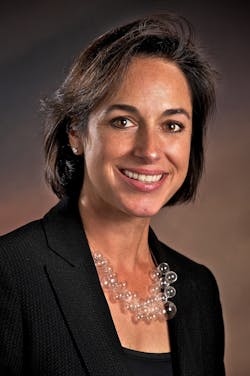Top News
Feds Publish Proposed ACO Updates, Look to Boost Telehealth and Health IT Use
Key Takeaway: The Centers for Medicare and Medicaid Services (CMS) published proposed rules for the next phase of the Medicare Shared Savings Program (MSSP) to encourage broader participation in Accountable Care Organizations (ACOs). Some provisions would encourage use of telehealth tools and require ACOs to describe their plans to promote the use of health IT to improve care coordination.
Why it Matters: By allowing a wider set of use cases involving telehealth, CMS is wading into policy changes that may affect broader aspects of Medicare reimbursement. And by requiring ACOs to describe their plans to use health IT, CMS is hoping that organizations will think strategically about their adoption and utilization of health IT tools to improve care coordination.
The much-anticipated release of updates to Medicare’s ACO program surfaced last week, with many observers voicing optimism about the changes. The main provisions would lessen the risk borne by providers to demonstrate savings and would give ACOs more options to participate in new or modified risk-sharing models. Of interest to health IT executives are proposed provisions that expand ways telehealth tools can be used to deliver care and new requirements asking ACOs to describe how they plan to use health IT tools. In proposed rules, CMS says, “We believe that requiring ACOs to address health information technology infrastructure in their application to the Shared Savings program would support more careful planning and increased focus on this issue.” CMS is also proposing to have ACOs describe their strategy to partner with long-term and post-acute care facilities, presumably through health IT.
CMS said expects the revision of the ACO rule to lower the initial risk of creating an ACO and to increase participation in the Shared Savings Program. Estimates published in the proposed rule expect additional savings of about $280 million more than the $730 million median net savings estimated previously for 2016 through 2018.
CHIME will engage in the public commenting process by establishing an ACO workgroup. Please contact Jeff Smith if you are interested in learning more about workgroup participation or receiving updates on workgroup progress.
Legislation & Politics
Senate Bill Defines FDA Authority over Health IT
Key Takeaway: The Medical Electronic Data Technology Enhancement for Consumers’ Health (MEDTECH) Act, introduced into the Senate last week, would exempt low-risk medical software and mobile medical applications from the oversight of the Food and Drug Administration (FDA).
Why It Matters: While similar to legislation offered by House lawmakers, the MEDTECH Act represents a slightly different approach and will offer stakeholders an alternative answer to the question of what the FDA’s role should be in regulating health IT.
Last week, incoming Senate Finance Committee Chairman Orrin Hatch (R-UT) and Sen. Michael Bennett (D-CO) introduced the MEDTECH Act to limit and clarify the FDA’s role in regulating administrative and financial software, many consumer applications and certain aspects of electronic health records. The legislation aims to give entrepreneurs and vendors certainty regarding the role of the FDA in regulating mobile medical applications and other lower risk technologies. Senator Hatch announced his intention to push the MEDTECH bill when he becomes the chair in January.
Reps. Marsha Blackburn (R-TN) and Gene Green (D-TX) have shared draft language for similar legislation in the House, the Sensible Oversight for Technology which Advances Regulatory Efficiency Act or SOFTWARE Act. That proposed legislation would amend the definition of a medical device, placing health IT software into three categories with varying levels of federal agency oversight. Rep. Blackburn, Vice Chair of the House Committee on Energy and Commerce, announced her intention to pass the SOFTWARE Act in early 2015.
The level of health IT-focused discussions have intensified on Capitol Hill as Congress prepares to adjourn for the holidays and return on January 6 with Republicans in control of both the House and Senate.
Administration
ONC Prediction: EHR Testing to be 2015 ‘Buzzword’…Maybe
Key Takeaway: During a pair of events in Washington last week, an Office of the National Coordinator for Health IT (ONC) official said EHR testing would be a priority and signaled intentions to develop new, perhaps more robust testing methods to bolster interoperability and usability.
Why it Matters: CHIME and several provider groups have identified ONC’s certification program, and the testing requirements related to certification, as an area for serious improvement. CHIME has stated previously that improved testing for continuous interoperability would substantially improve interoperability and would mitigate emerging safety concerns.
Statements made during a meeting at the Bipartisan Policy Center and, later, at the Health Level Seven (HL7) Policy Summit last week indicate that ONC officials are rethinking how certified EHR technology is tested. Steve Posnack, Director of Standards and Technology, at ONC said, “I am 51% sure that ‘testing’ will be a buzzword in 2015,” when asked to outline his thoughts on future work.
Several reforms have been discussed in the last year with the intent of improving the performance of certified EHR technology (CEHRT). At a day-long hearing earlier this year, several stakeholders were advocating for more robust testing, including “negative” testing, exception handling and scenario-based testing to better ensure interoperable and usable CEHRT.
Edited by Gabriel Perna for stlye


